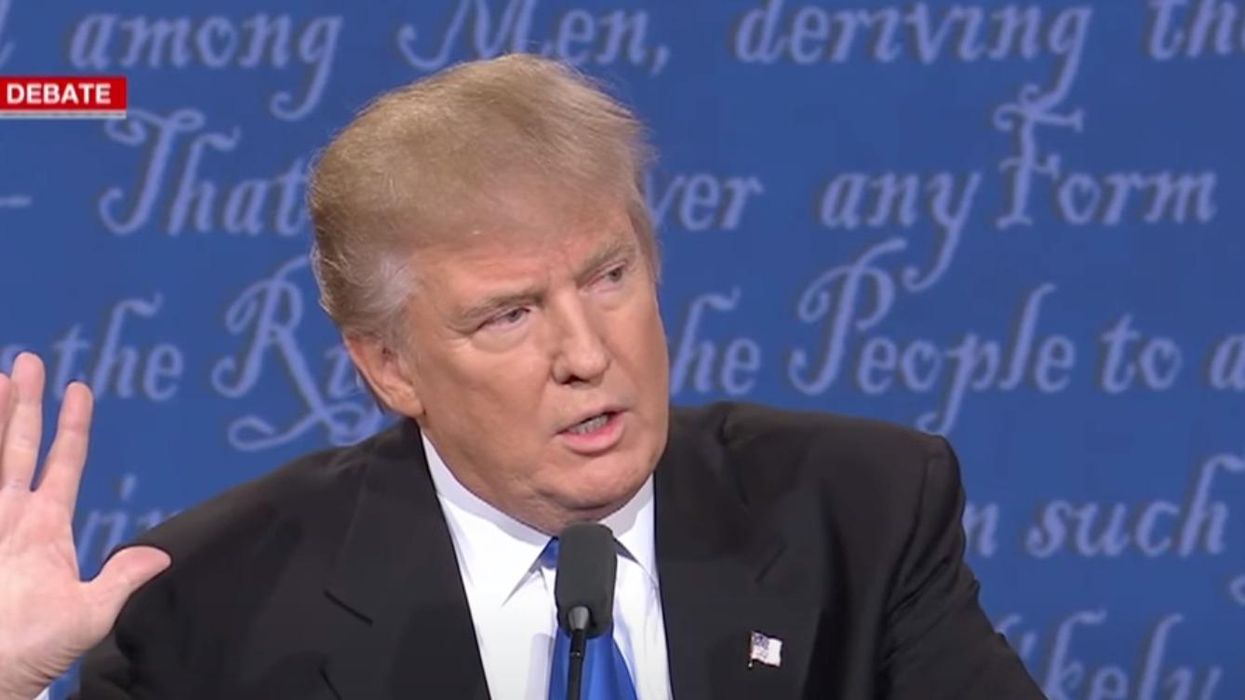
Donald Trump
Donald Trump has invoked his Fifth Amendment right to remain silent in a civil case, and if he ever stands trial on criminal charges, neither a judge or a jury may take that as evidence of guilt. But in the court of common sense, we are entitled to reach the obvious conclusion: Trump has committed crimes and wants to keep them secret.
The Fifth Amendment privilege, after all, is not to refuse to exonerate oneself. It's to refuse to incriminate oneself. Answering questions truthfully, as a rule, is incriminating only to someone who has done something wrong.
In our daily lives, everyone understands this. If you ask a coworker if he took your sandwich and he declines to reply, you have identified the thief. If you ask your child if she cut class and she says it's none of your business, you can guess the answer. Innocent people with solid alibis are usually eager to speak up on their own behalf.
But Trump is a master of stonewalling. When he faces suspicions of wrongdoing, the man who never tires of talking about himself falls into surly silence. So when investigators for the New York attorney general asked him questions related to whether he engaged in financial deception, he took the Fifth some 440 times.
The privilege against self-incrimination serves as a shield against police coercion. It requires the government to shoulder the full burden of proof before it can send someone to prison. It's an important safeguard in our criminal justice system
But there is no denying that Trump's use of it suggests a consciousness of guilt. He had refused to appear when subpoenaed by the attorney general, and he complied only when a state court ordered him to do so.
Concealing the truth is as natural to Trump as cheating at golf. He has declined to release his tax returns, as every other presidential nominee has done for decades. He refused to be interviewed by special counsel Robert Mueller during the investigation of Russia's interference in the 2016 election. He made a practice of tearing up documents that he was legally obligated to preserve.
He denounced the FBI's search of his Mar-a-Lago estate as part of a partisan "witch hunt." But he chose not to make public the search warrant, which had to specify what material the FBI was looking for and the crimes it suspected. Attorney General Merrick Garland finally asked a judge to release it and a list of the evidence collected. Trump, his bluff called, decided not to object.
Trump claims the congressional committee investigating the January 6 Capitol riot is determined to "damage me in any form." But he has tried to block every attempt to learn what he and his aides did during, before, and after the bloody siege.
The White House phone log from that day contains a gap of more than seven hours, even though he is known to have made calls during that period. Clearly, he was actively trying to avoid leaving a trail of his communications.
He ordered some of his chief advisers not to comply with the committee's subpoenas to give testimony. One of them, Stephen Bannon, was convicted of contempt of Congress for refusing to appear and could go to prison for two years.
Trump has not hesitated to justify his conduct around the Jan. 6 insurrection and in condemning his critics. He accuses the January 6 committee of presenting a shamefully one-sided case, with no witnesses to defend him. But why does he need witnesses to defend him? Nothing is stopping him from appearing before the committee to give his version of events. Trump, however, is unwilling to take that stage.
The reason, it's fair to assume, is the same as the reason that he took refuge behind the Fifth Amendment when grilled by the attorney general of New York. A guilty person, speaking under oath, has three options: 1) lie and risk being prosecuted for perjury; 2) tell the truth and risk being prosecuted for breaking the law,; and 3) zip his mouth.
The third option has its downside, such as reasonable people concluding that you're a criminal. But better for Trump to be thought a criminal by the general public than to be convicted in court and locked up for his crimes.
Trump can blather nonstop against the FBI, the Justice Department, state law enforcement officials, and the January 6 committee. But it's his silences that tell the real story.
Reprinted with permission from Creators.
- ACCC+commissioned+report+-+The+impact+of+digital+platforms+ ... ›
- Remarks by President Biden Before the 76th Session of the United ... ›
- 14th Amendment US Constitution--Rights Guaranteed Privileges ... ›
- Press Coverage of the Refugee and Migrant Crisis in the EU: A ... ›
- Remarks by President Biden Celebrating Independence Day and ... ›








